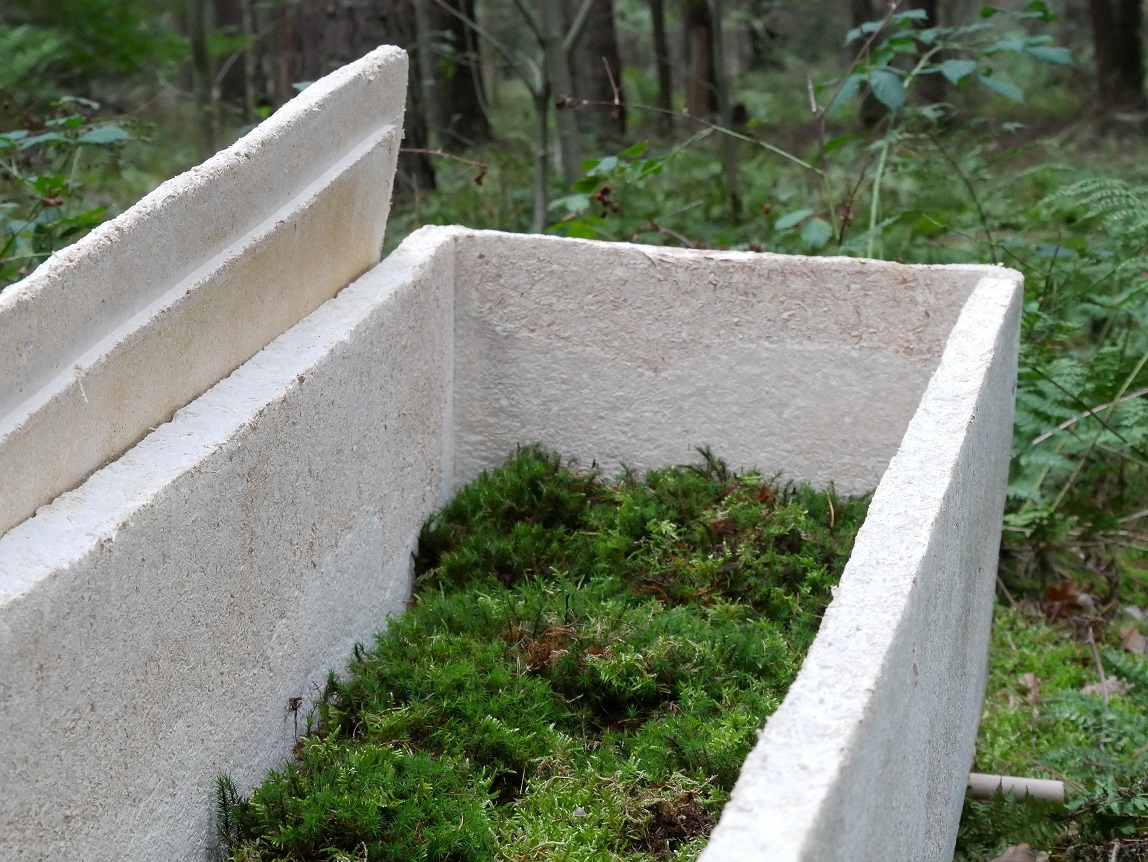The Delft start-up Loop has developed a living coffin which transforms waste products from an efficient composting of the body into nutrients for new life.
The living coffin. (Photo: TU Delft)
Becoming one with nature is the principle behind the Living Cocoon, the first living coffin in the world. The coffin, developed by the Delft start-up Loop, is made from mycelium, a living organism that normally grows underground in the complex root structures of trees, plants and mushrooms.
‘The greatest recycler in nature’
“Mycelium ensures that everything that dies is efficiently transformed into new plant food,” explained Loop founder Bob Hendrix. It’s not surprising that he calls it ‘the greatest recycler in nature’. “Mycelium is continuously looking for waste materials to transform them into nutrients for the environment. It can transform toxic substances, for example, like oil, plastic and metal.”
- TU Delft TV made a short documentary about the living coffin:
New life
Thanks to this cleaning-up property, a coffin can decompose within 30 days once it is placed in the ground. And while a body would normally take up to ten years to decompose, Hendrix anticipates that the Living Cocoon can complete the process in two to three years. “By employing mycelium, the body composts faster, and hazardous substances in our bodies and in the soil are neutralised. So instead of polluting the earth, we are enriching it, and new life can grow there.”
Will people want to be buried in such an alternative coffin? Frank Franse, general director of the funeral home Eer & Volharding, believes they will. He has noticed an increasing trend for alternative burial options. “We bury people in shrouds, willow wicker coffins and coffins made from Dutch wood.” But the concept of a living coffin is unique in his opinion, “It clearly adds something to nature.”
- Since September, the Living Cocoons are available in a limited number of editions. Funeral organization CUVO (region The Hague and Zoetermeer) arranged the first funeral with a living coffin.
Do you have a question or comment about this article?
m.vanderveldt@tudelft.nl


Comments are closed.